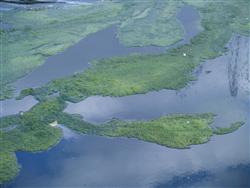
Study Environmental Assessment Online
Learn to prepare Environmental Assessments of all kinds.
Work in this area has expanded greatly in recent decades, and when combined with a knowledge of plant or animal identification and ecology, this course develops an extremely valuable skill.
If you already have some environmental expertise (eg. know how to identify plants and/or animals; or understand ecology and botany); this course can readily compliment your existing skills and greatly improve your capacity to work in the environmental industry.